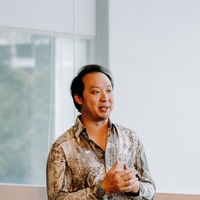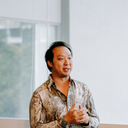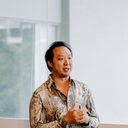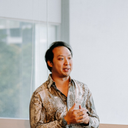#27. Joan Chia and her Values, Passion, and Purpose
Values are your non-negotiable foundation, passion is about what excites and motivates you, and purpose is your deeper reason for existence.
- Harvard Business Review
Whether you are a founder or creator, a leader or a gig worker, a consultant or a teacher, discovering and aligning your values, passion, and purpose will give you the best chance at having a fulfilling career, and more importantly, a meaningful life. You then contribute to a virtuous cycle, where organisations can achieve their mission, and society and beyond will benefit in the long run. Wantedly’s mission is to create a world where work drives passion, and this is why we want to inspire reflections on what our own values are, and how we discover our passion and strive towards our purpose.
This year, Singapore celebrates our 60th birthday, and to honour this momentous occasion, we have embarked on a content series featuring 60 stories on people who have become who they are today because of Singapore, and who are making a difference in Singapore.
Introducing Joan
Joan Chia is the founder and principal speech therapist at Ray of Joy Therapy, serving children aged 12 months to 18 years across Singapore. Since graduating in 2011, she has built over a decade of experience spanning clinical and management roles across hospital, social service, and educational settings. This journey through Singapore's diverse support systems revealed how therapy, education, and family life intersect—ultimately inspiring her to take a leap of faith and establish her own practice alongside two fellow speech therapists who shared her vision.
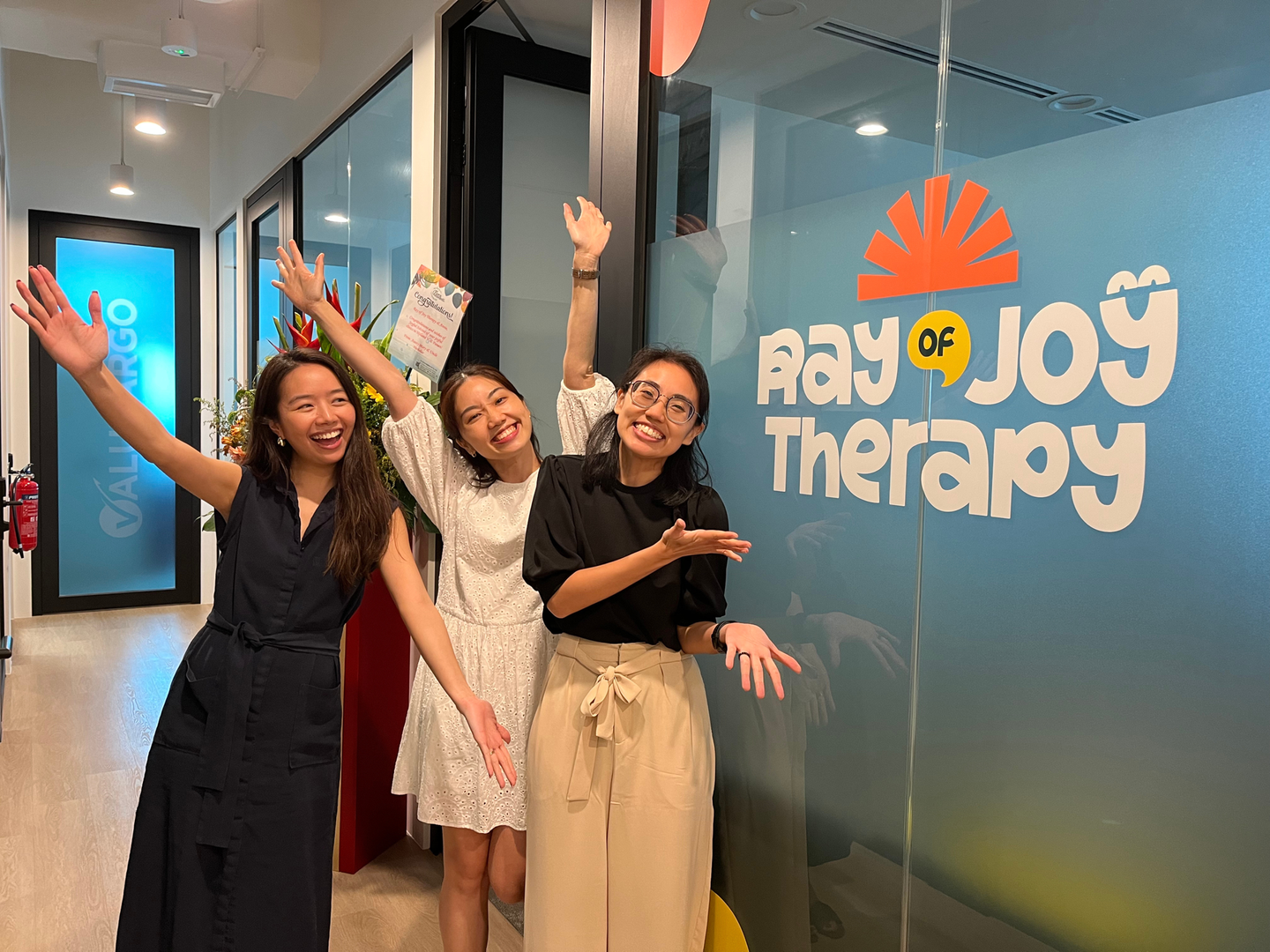
Named after her children Ray and Joy, the practice embodies Joan's deeply personal belief that effective therapy must empower entire families, not just treat individual children. Her approach weaves clinical expertise with sensitivity to each family's unique circumstances. Beyond her clinical work, Joan serves as Clinical Instructor and Associate Faculty at Singapore Institute of Technology.
In her own words
When I was young, I had two very different dreams: owning a bridal studio and becoming a voice animator. While these might seem unrelated to my current career as a speech therapist, I think they all share something simple - they're about helping people express themselves. Whether it's helping a bride feel like herself on her wedding day, bringing characters to life through voice, or supporting children to communicate, it's really just about being part of people's stories in small but meaningful ways.
1. What are your top 3 values?
Kindness
If I could choose just one value for my children, Ray and Joy, to grow up with, it would be kindness - to be kind to others, kind to themselves. There's a quote from Charlie Mackesy's The Boy, the Mole, the Fox and the Horse that captures what I believe: "Kindness sits quietly beyond all things." It's a profound force existing beyond all the noise and struggles - a quiet, enduring power that's always present.
In the field of therapy, where families often experience elevated stress, approaching them with genuine kindness - especially on their hardest days - creates the safety they need to share their real struggles. I've learned that the therapeutic relationship is built on these moments: when a parent sees you gently redirect their child without judgment, when you remember to ask about their sick grandmother, when you acknowledge how hard they're trying. These small acts become the foundation of trust that makes everything else possible.
This isn't always easy. Some days I fall short. But I try to return to kindness.
Togetherness
My second value is togetherness - one of three core values we emphasize in our family. Doing things together, sharing meals, struggling through challenges, celebrating victories. We go further together.
This extends into my practice. I always tell parents: we're on this journey together. Therapy is rarely quick, but when parents, educators, helpers, and other professionals truly collaborate, something shifts. Goals become clearer. The village is empowered. Progress accelerates.
As a private practice, it would be easy to work in isolation - child and therapist in a room, disconnected from their world. But we actively resist this. We seek out the child's teachers, invite helpers into sessions, coordinate with other therapists. A child doesn't exist in isolation, neither should their support. When everyone understands the strategies and works together, that's when we see children truly flourish.
Responsibility
Growing up, my family emphasized this value: if someone trusts you with something, you take it seriously. When I received a scholarship to study speech therapy years ago, it reinforced this responsibility - I've been given the skills to help, so I have a responsibility to do it well.
When parents entrust me with their child's communication journey, I honour that trust by staying current with evidence-based practices, following through on commitments, and caring about outcomes even after our sessions end. Responsibility also means knowing our limits - referring families to specialists when needed and being honest when we don't have all the answers.
2. What keeps you up at night?
Honestly, besides my children literally keeping me up, two things keep me up:
First, technology's impact on our kids. I see toddlers who can swipe screens but can't communicate basic needs, and it troubles me. Yet I also recognize that technology - used thoughtfully - might be the key to making therapy support accessible to families who can't afford private services or are stuck for months on public waitlists.
My husband and I often stay up late grappling with this: how do we create tools that support development without contributing to the screen addiction problem we're trying to solve?
The second thing: the accessibility gap. Right now, if a parent has concerns about their child's development, they face months of waiting for professional assessment. Many don't even know whether their concerns warrant professional help or if it's just normal variation.
We developed our free Communication Milestones Tracker to address this - it gives parents guidance about their child's development. We've paired it with free 15-minute phone consultations because information alone isn't enough. Families need human guidance to understand what the results mean and what to do next.
But even with these tools, I still lie awake thinking - how do we reach the families who don't even know to look for help? The parents who've been told 'boys talk late' or 'just wait and see'?
That's what really keeps me awake.
3. What gets you out of bed in the morning?
Honestly? It's Ray's voice in my head saying, 'Tomorrow, mama will give me milk.'
That's how he reassures himself to sleep - reminding himself that I'll be there in the morning with his bottle. So even when I'm exhausted, I can't stay in bed. After Ray is fed, it's cuddles with Joy before the day fully starts.
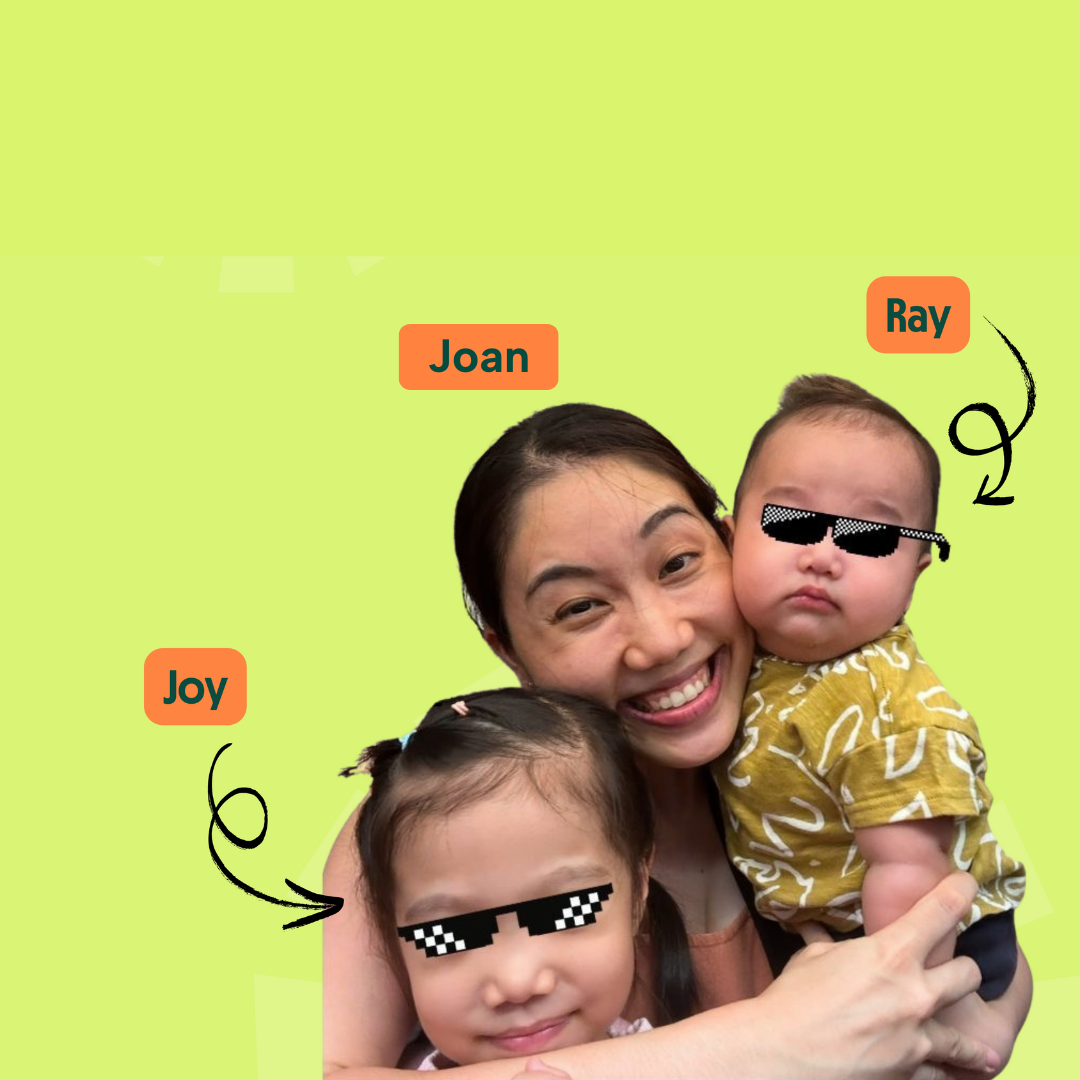
My kids also ground me in my work. When I'm supporting families through developmental challenges, I'm looking at someone's Ray or Joy. That's deeply personal.
And there's this: A child once asked me, "Why don't you have to go to work?" When I said "I AM at work," he looked confused: "No, you're playing!" How many people get to blow bubbles, build blocks, and genuinely play at work?
Some mornings are hard. There are days I've let Ray down, when exhaustion won. But Ray's promise, Joy's cuddles, and work I've chosen? That's what gets me out of bed.
4. What fills your cup?
Two sounds fill my cup:
First, children's laughter - that genuine, unfiltered joy. Whether it's a breakthrough moment in therapy or unhurried morning play with Ray and Joy, those moments of pure connection really fill me up.

Second, nature sounds - birds, crickets, cicadas. When I'm feeling depleted, I go to Botanic Gardens. I walk, I sit, I listen. It helps me reset.
5. With Ray of Joy, how do you define impact and success? What will it take for that to be realised?
We try to impact in two ways - deep and wide.
Deep impact means being truly present with each family. When a child has additional needs, it affects everyone - parents, siblings, grandparents. So I take time to sit and listen, to help families weave therapy into their daily lives. I could see more clients if I rushed, but what matters isn't just what we do - it's whether families feel heard and supported.
Wide impact is reaching families we may never meet. Our free Milestones Tracker has helped close to a hundred families since we launched in January - still early days for us. Our phone consultations guide families through the system whether they become clients or not. We're exploring how technology can make support more accessible without replacing the human connection.
Success? Families getting help quickly and feeling supported, not just serviced.
And building that success takes the same three values I try to live by: Kindness in how we treat every family and team member, togetherness in building strong partnerships and collaboration, and responsibility in honoring our commitments. These aren't just values I try to live by as a parent and practitioner - they're the foundation for how we'll grow sustainably and ethically.
6. Please leave us your advice for professionals like yourself considering entrepreneurship.
To professionals considering entrepreneurship - especially those with young children - let me be honest: it's still stressful. Maybe even more stressful than employment.
But here's the difference: you get to work on stressors that are meaningful to you. You don't get better work-life balance. You just get to choose your hours - and yes, they might be longer.
I put off starting Ray of Joy for years. I was scared - of failure, of financial instability, of juggling it all. Those fears were valid. Some days I still feel them.
But I don't dread Monday mornings anymore. When I'm problem-solving at midnight, it's about challenges I've chosen to tackle.
My biggest advice? Think about it like glass balls versus rubber balls.
Glass balls are the things that, if dropped, shatter and can't be repaired. For me, that's Ray needing his morning bottle, Joy's cuddles, my marriage, my clients' trust, my team's wellbeing. Those don't get compromised.
Rubber balls bounce back - the perfect home, immediate emails, networking events, even some business opportunities. Those can wait.
Embrace the beautiful chaos. Starting Ray of Joy was scary - but waking up to work you've chosen, while protecting your glass balls? Worth it.
If my journey resonated with you, drop me a message on LinkedIn to connect!
If you know someone who might benefit from Ray of Joy's mission to help every child to express themselves fully and fearlessly, reach us at connect@rayofjoytherapy.com / drop us a WhatsApp message at +65 80934773 or visit us at www.rayofjoytherapy.com.
This series was brought to you by Wantedly Hire - an application tracking system optimised for modern hiring practices. Experience seamless hiring with tailored workflows designed to align with your recruitment structure, automated interview scheduling, and actionable insights to optimise hiring performance!
SG60’s theme is a refreshed spirit, and by celebrating Singapore’s journey to date, Wantedly is glad to spotlight those who have contributed to the past, and will be shaping the next chapter of the Singapore story. And as a nation, we reflect on our shared values of multiculturalism, boldness, resilience and openness, which allowed us to prosper.
